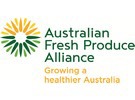The Australian Fresh Produce Alliance (AFPA) welcomes funding for the Australian Agriculture Visa (AgVisa) and Pacific Australian Labor Mobility (PALM) scheme announced as part of the Mid-Year Economic and Fiscal Outlook. The AgVisa will receive $87.2 million over the next four years to address workforce challenges in the industry.
“This funding will ensure the implementation of a visa that includes high standards for employers and robust program management. The AgVisa is a key piece of policy that will enable the fresh produce industry to continue to develop a productive and returning workforce” said AFPA CEO Michael Rogers. Funding for the AgVisa includes $8.7M of funding for the Fair Work Ombudsman (FWO). The AFPA had previously called for additional funding for the FWO to support the horticulture sector in education, compliance and enforcement.
“We’ve previously called for additional funding to FWO to develop a horticulture taskforce. As the industry moves towards more regulated migration programs we need to make sure that the regulator is appropriately resourced to be able to enforce standards and ensure compliance within the sector” said Mr Rogers.
Phases
The first phase of recruitment under an AgVisa is expected to occur early in 2022, with a second implementation phase to follow. “We’re pleased with the development of the AgVisa to date and the incorporation of key measures like minimum English language requirements, welfare support and accommodation standards being included to support AgVisa holders working in the sector” said Mr Rogers.
The Pacific Australia Labor Mobility (PALM) scheme will also receive $81.3 million over the next four years in funding to support the merger of the Seasonal Worker Program and Pacific Labor Scheme. Earlier reforms to the PALM scheme saw the increase of many employers’ recruitment caps, making it possible to increase the number of Pacific workers employed in the sector. “Members of the AFPA remain committed to the PALM scheme including the ongoing recruitment and skill development of Pacific workers as well as the management of worker welfare, protection and support” said Mr Rogers.
Other measures
Additional measures to support the horticulture industry include $30 million in funding for management of fruit fly through new post-harvest treatment infrastructure, upgrading quarantine stations and investing in Sterile Insect Technique capabilities. “Funding for the management of fruit fly is vital to the Australian fresh produce industry. Fruit fly incursions can prevent the domestic trade of fresh fruit and vegetables as well as limit our international export opportunities. The AFPA have advocated for a national approach on fruit fly and this funding demonstrates the Government’s leadership on this issue” said Mr Rogers.
The horticulture industry is also set to benefit from an additional $154.5 million to support Australian exporters, modernize Australia’s trade system and streamline border clearance services. Members of the AFPA represent approximately one third of Australia’s fresh produce exports and are calling for a whole of government approach to negotiating new market access to key export markets. “The reality is, domestic growth of our sector is limited and any significant increase to the value of the fresh produce industry can only come from creating new export opportunities. New and improved market access, supported by ongoing Government investment and efforts will increase the value of the fresh produce industry and support jobs and growth in regional communities” said Mr Rogers.
For more information: Australian Fresh Produce Alliance
Australian Fresh Produce Alliance
PO Box 636, Collins Street West, Victoria 8007
info@freshproduce.org.au
www.freshproduce.org.au
